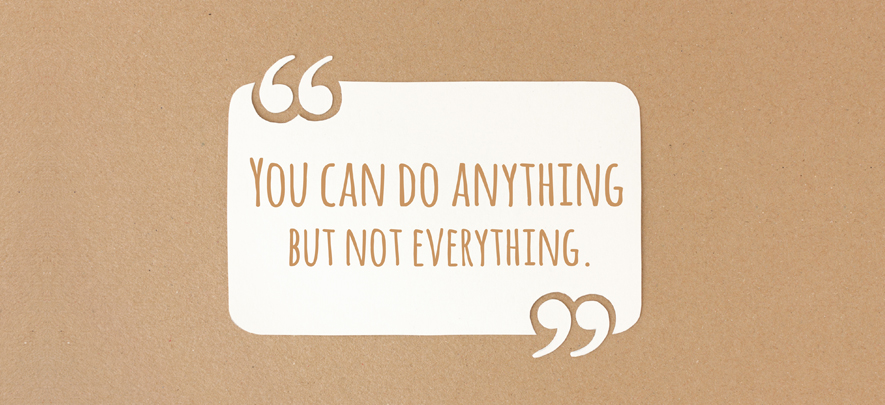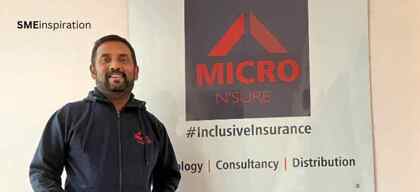Don’t do more, do less, better

Learning & Development
271 week ago — 6 min read
How many of you will agree to the fact that the world we are living in is nothing less than a rat race? Take a look around and you will understand what we are saying. Every single person around you is extremely busy. In fact “busy is the new cool” these days. But little do we realise that in a bid to multitask and accomplish multiple things at a time, we are getting trapped in a quicksand, where time quickly slips away and there is only so little we can do!
Ask an average working person about the list of things they need to do in a day and you will be baffled by the dangerously long list. But in doing so are they being productive? Guess not. Dave Crenshaw, an author, speaker and the learning instructor of LinkedIn says the key to being productive is not doing more but doing less, effectively. Though the idea sounds fairly simple, but it’s harder said than done.
So , here we have some tips that can help you get work that is meaningful, done effectively.
1. Identify your most valuable activities and the least valuable activities
Dave Crenshaw in one of his productivity courses asks people to segregate their tasks into most valuable activity (MVA) and least valuable activity (LVA). And the easiest way to do is by jotting down all the tasks that you feel are important, will take a major portion of your time and will yield great results for your business and those tasks that you can easily delegate or put off for some other time.
Once you have identified your MVAs and LVAs, you can plan your calendar accordingly and invest your time and energy in doing work that is meaningful. After all, what is the point of getting overloaded with work that only drains you at the end of the day?
Also read: How can you embrace chaos and the 80/20 rule that will change your life
2. Always put quality before quantity
We aren’t saying making a note of things to do is a bad idea. But when we do so, we are in a race to strike tasks off our list even if that means hurriedly finishing a task. Sometimes this can lead you to do the same things twice, which is not a good utilisation of your time. Hence, instead of focusing on the quantity of work, focus on the quality and you will soon see how your work improves.
3. Put an actionable strategy in place
The first step to strategising your work is learning to say ‘no’. You can’t do everything and you can’t be everywhere. Many of us have the tendency to say yes to everything. In the process, you are either trying to impress someone or you simply don’t have the courage to say no to a task. But once you learn the art of saying no to things, you will learn that you have more time to spend on the work you love, on the work that matters.
For example, you say no to a project idea that would have probably taken just a few hours of your time each month, but in denying to do that work, you have freed up your space to do a lot more, maybe work on the current project and give it the best, attend a few seminars, record some podcasts, etc. You will feel how amazing it feels when you decide to do only a few tasks at a time.
Also read: Achieving breakthrough results: The process behind it
4. Don’t let the fear of missing out grip you
The fear of missing out or most commonly known as FOMO has taken a toll on the present generation and is infecting the older ones too. The fear that if we don’t say yes to a thing or don’t do these tasks, we will miss out on that raise or a bigger opportunity is infectious. And it is making people more anxious and stressed out. It is important to understand that it is okay to miss out on a few things in life. That’s life.
5. Be true to yourself
No matter what the situation is, stay true to your values and ethics. Just because you have agreed to do something doesn’t mean you will continue doing so even after knowing that it is not adding any real value to your work. Cut that work out of your life and invest your time and energy in doing something else.
6. Always watch out for the outcome
The important thing to remember is that in doing less you are in no way impacting the business or organisation. You must always keep the outcome in mind. Plan your work in such a way that you are creating the maximum impact with less work.
Conclusion
The art of doing less, effectively can be mastered with the above points in mind. You are not being rude when you say no to things. It is just that every person has a bandwidth s/he can perform under. It is important you set that limit right in order to lead a happy productive life.
Keep the following things in mind:
- Think twice before you say yes to anything.
- Block a time slot only for yourself. Do things you love during that time.
- Take a short break after every task.
- Be mindful of your work. That will help you get work done faster and more efficiently.
- Take care of your health
- Enjoy your work
Hope you find this article useful in managing your work routine and getting the unessential tasks out of your way.
Also read: The art of procrastination and how to avoid it
Image courtesy: shutterstock.com
Posted by
GlobalLinker StaffWe are a team of experienced industry professionals committed to sharing our knowledge and skills with small & medium enterprises.
Most read this week
















Comments
Please login or Register to join the discussion